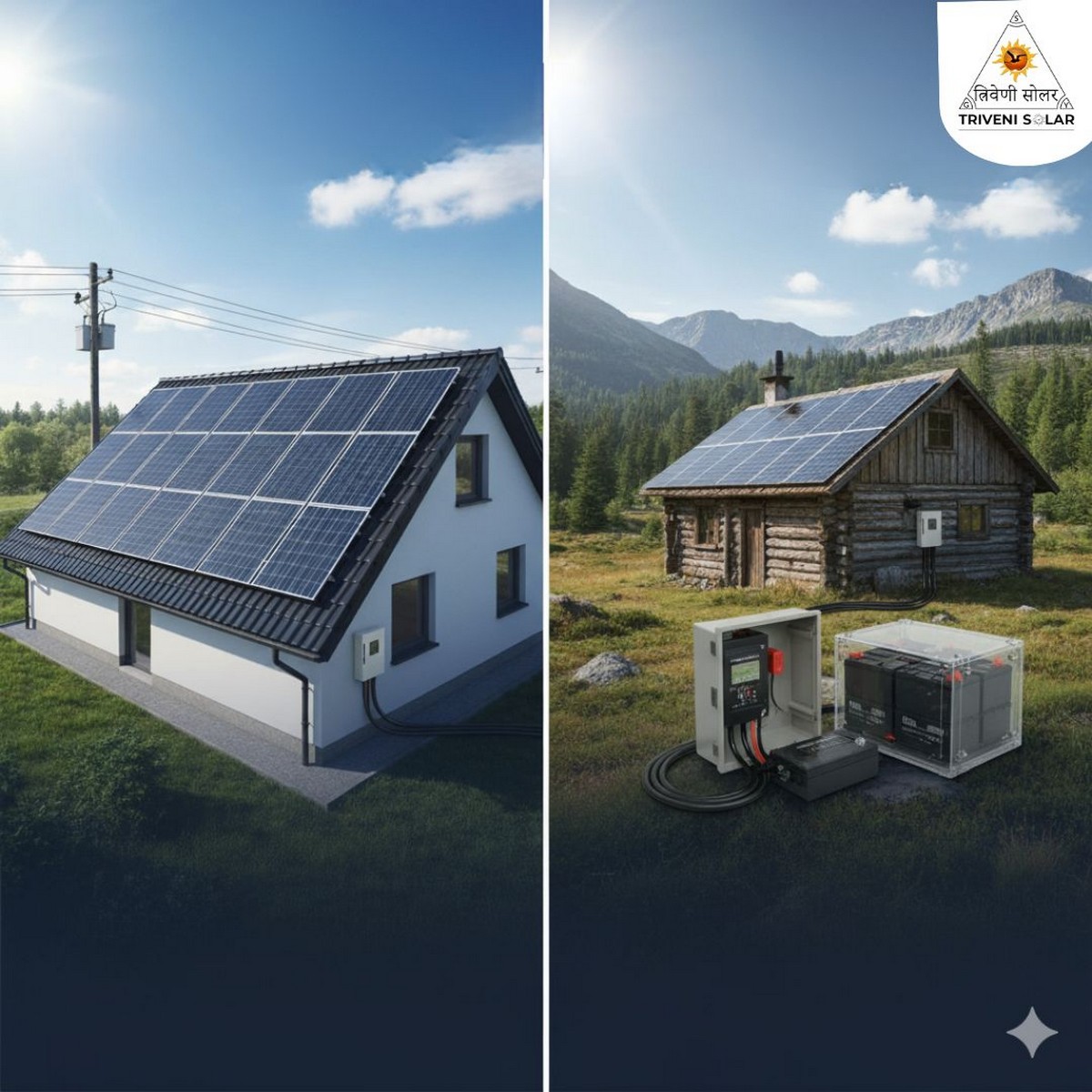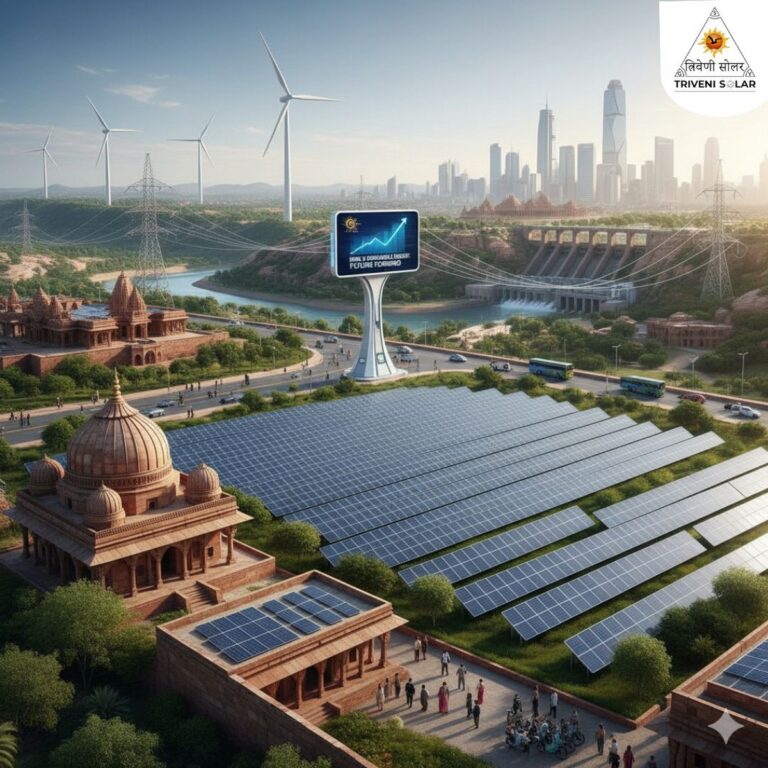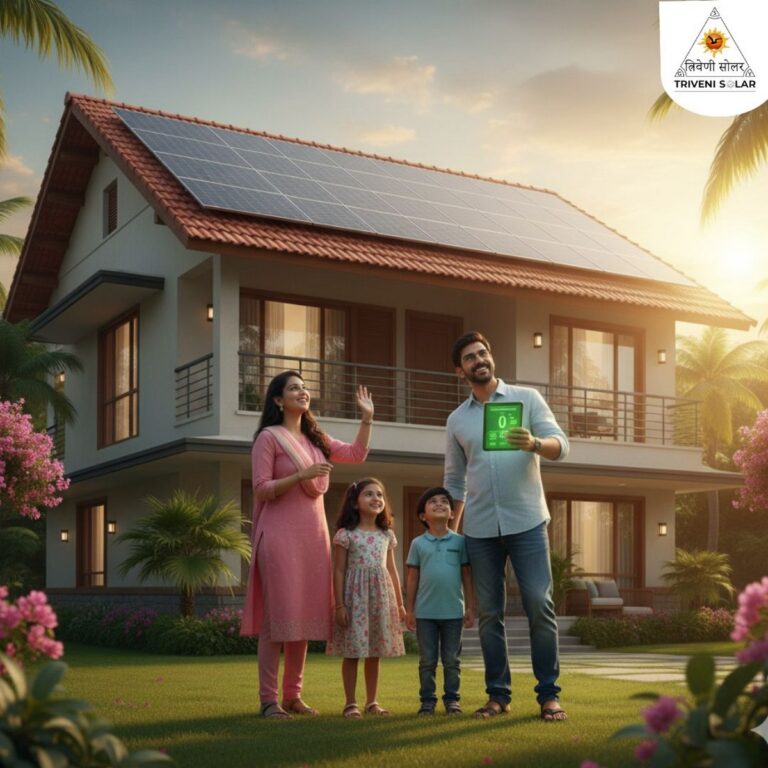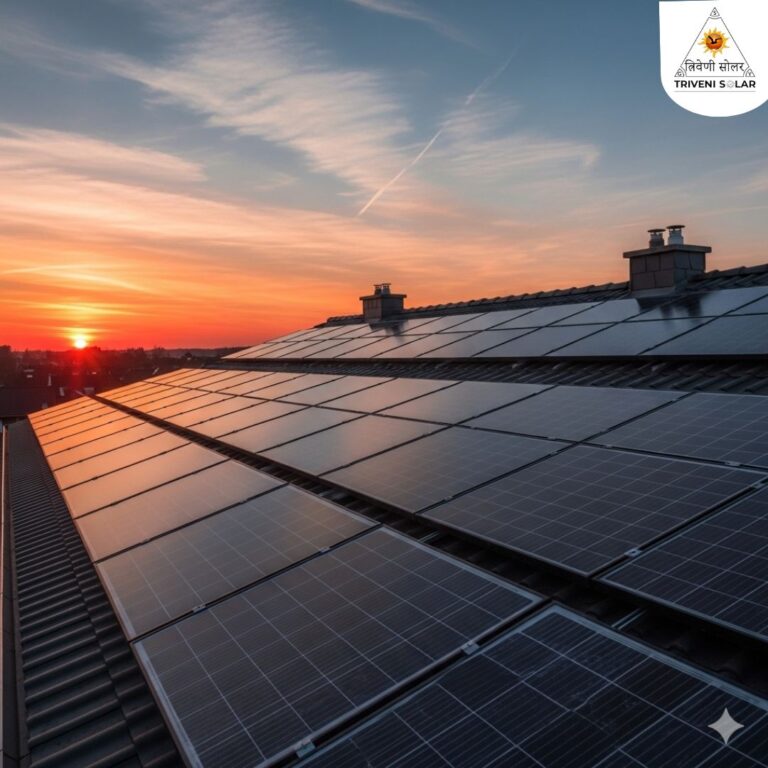Looking to switch to solar energy but confused about whether an on-grid or off-grid solar system is right for you? This guide will help you understand the differences, advantages, and costs of each system so you can make an informed decision for your home or business.
Table of Contents
- Introduction
- What is an On-Grid Solar System?
- What is an Off-Grid Solar System?
- Key Differences Between On-Grid and Off-Grid Systems
- Cost Comparison: On-Grid vs Off-Grid
- Energy Independence and Reliability
- Maintenance and Lifespan
- Environmental Impact
- Choosing the Right System for Your Needs
- Conclusion
- FAQs
Introduction
Solar energy has become a popular solution for reducing electricity bills and promoting sustainability. However, choosing between on-grid and off-grid solar systems can be challenging. Each system has unique features, costs, and benefits. In this guide, we’ll provide insights, comparisons, and practical tips to help you decide which system suits your energy needs.
What is an On-Grid Solar System?
An on-grid solar system, also called a grid-tied system, is connected directly to the local electricity utility. It allows you to use solar energy during the day and draw power from the grid when needed.
Components of On-Grid Systems
- Solar panels
- Inverter
- Utility meter
Advantages
- Lower initial cost compared to off-grid systems
- Net metering allows you to sell excess power back to the grid
- Minimal maintenance required
Disadvantages
- No power during grid outages unless a battery backup is installed
- Dependent on grid availability
What is an Off-Grid Solar System?
An off-grid solar system operates independently without any connection to the electricity grid. It stores energy in batteries for use when solar production is low or unavailable.
Components of Off-Grid Systems
- Solar panels
- Charge controller
- Batteries
- Inverter
Advantages
- Complete energy independence
- Reliable power in remote or rural areas
- Reduces dependency on fossil fuels
Disadvantages
- Higher initial cost due to batteries and storage
- Requires regular maintenance, especially battery upkeep
- Limited scalability in large setups
Key Differences Between On-Grid and Off-Grid Systems
| Feature | On-Grid | Off-Grid |
|---|---|---|
| Connection | Connected to the utility grid | Independent, not connected to the grid |
| Power Availability | Relies on grid during non-sunny periods | Uses stored battery power |
| Initial Cost | Lower | Higher |
| Maintenance | Minimal | Requires regular battery maintenance |
| Ideal Usage | Urban or semi-urban areas with reliable grid | Remote locations or areas with unreliable grid |
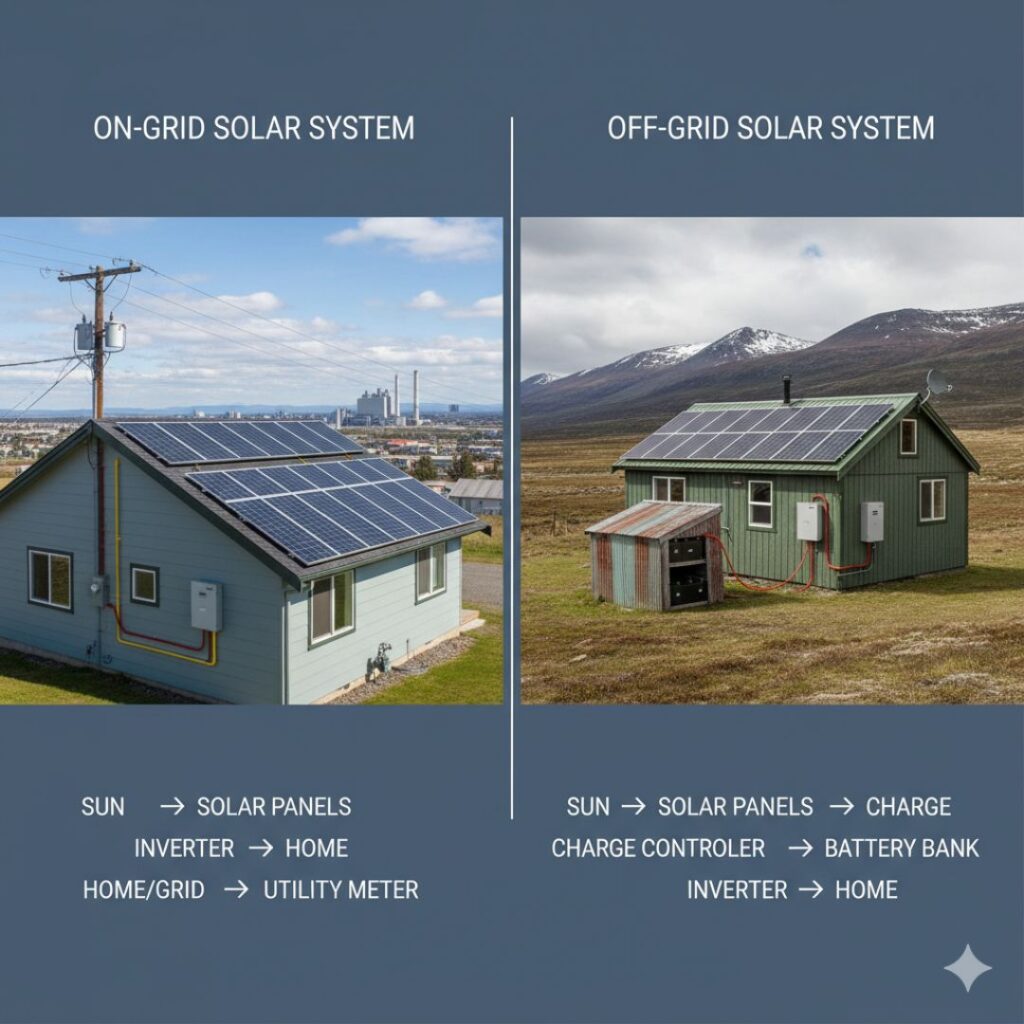
Cost Comparison: On-Grid vs Off-Grid
Understanding costs is essential before choosing a system. Here’s a comparison of average costs and ROI:
| System | Average Cost (INR) | Maintenance | ROI |
|---|---|---|---|
| On-Grid | ₹50,000 – ₹70,000 | Low | Faster |
| Off-Grid | ₹1,00,000 – ₹1,50,000 | High (battery upkeep) | Longer |
Energy Independence and Reliability
On-grid systems rely on the electricity grid, so outages affect power availability. Off-grid systems provide full independence and consistent power in areas with no grid access, ideal for remote homes or farms.
Maintenance and Lifespan
- On-Grid: Minimal maintenance, system lifespan 25–30 years.
- Off-Grid: Regular battery maintenance required, battery lifespan 5–15 years, overall system 20–25 years.
Environmental Impact
Both systems reduce carbon footprint, but off-grid setups can promote sustainability in remote locations by eliminating dependence on fossil fuels. On-grid systems contribute to cleaner energy use while benefiting from net metering programs.
Choosing the Right System for Your Needs
Your choice depends on location, energy requirements, and budget:
- On-Grid: Best for urban areas with reliable electricity, cost-effective, minimal maintenance.
- Off-Grid: Ideal for rural or remote locations, energy-independent, higher upfront cost but long-term reliability.
Conclusion
Choosing between on-grid and off-grid solar systems requires assessing your energy needs, budget, and location. On-grid systems are cost-effective and suitable for areas with stable electricity, while off-grid systems provide independence and reliability in remote areas.
For personalized solar solutions, contact PM Surya Ghar today and take the first step toward sustainable energy.
FAQs
What is the main difference between on-grid and off-grid solar systems?
On-grid systems are connected to the utility grid, while off-grid systems operate independently using battery storage.
Which system is more cost-effective?
On-grid systems generally have a lower initial cost and faster return on investment, making them more affordable for urban homes.
Can off-grid systems be used in urban areas?
Yes, they can be installed in urban areas if you want complete energy independence, though it is less common due to higher costs.
How long do solar systems last?
On-grid solar systems last 25–30 years, while off-grid systems last 20–25 years depending on battery maintenance.
Are there government incentives for solar installations?
Yes, various Indian government schemes and subsidies are available for both on-grid and off-grid solar systems.
